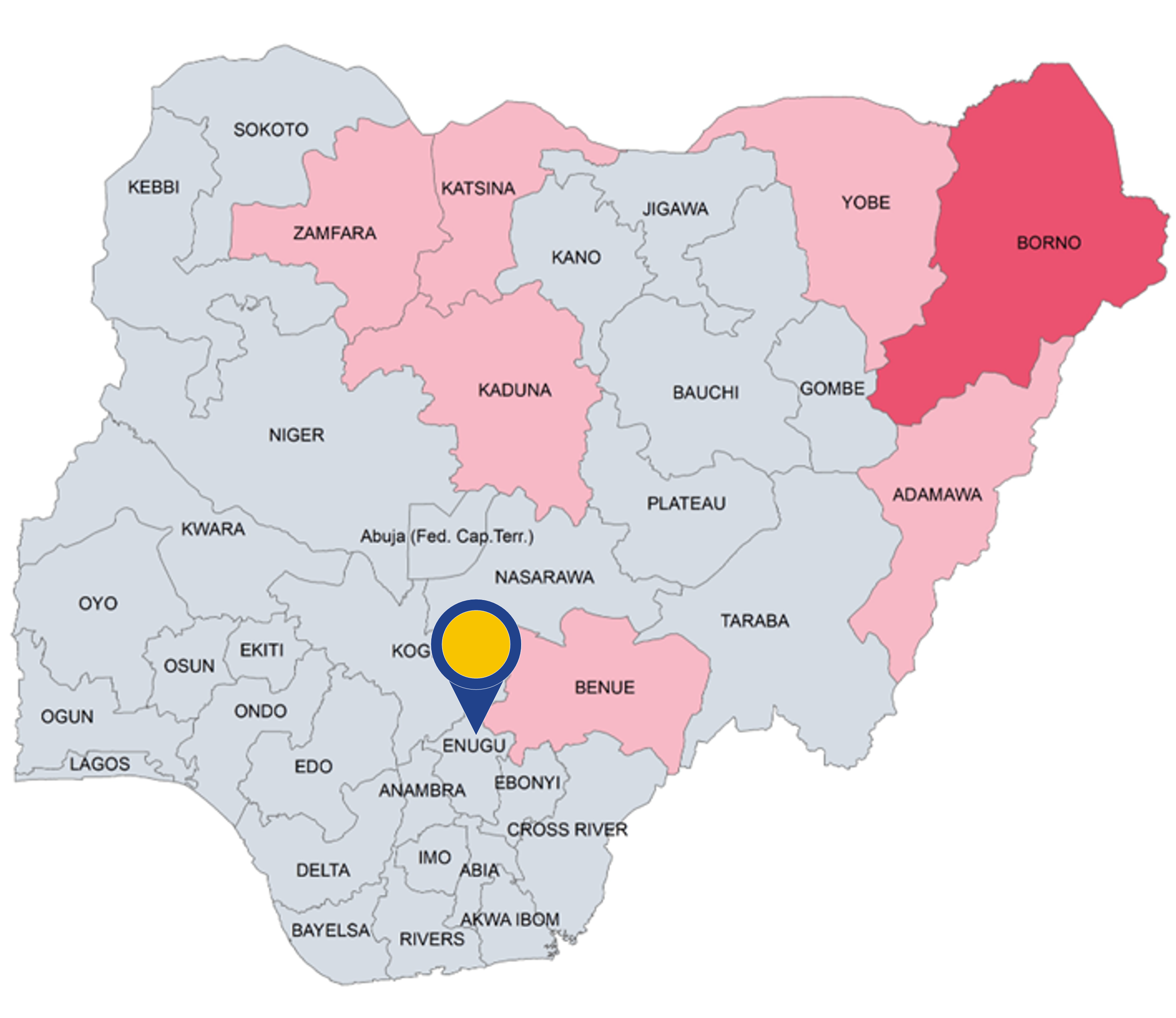Enugu state is composed of 17 LGAs and its capital is Enugu city. The state’s estimated population was 4 411 119 in 2016.

The main actors in the security situation in Enugu state were police services, unidentified gunmen, #EndSARS protesters, IPOB and different communities. In 2020, conflicts in Enugu state were mainly around clashes between communities over land. Enugu state government has tasked a security outfit with providing security in the land areas contested in the farmer-herder conflict.
In August 2020, a clash between IPOB and police forces led to casualties by both parties. In October 2020, during #EndSARS protests people were killed or wounded. Cases of abductions were reported in Enugu.
During 2020, ACLED reported a total of 18 security incidents (1 battles, 12 cases of violence against civilians, 5 incidents of riots) in Enugu state (average of 0.3 security incident per week). Security incidents took place in 9 out of 17 LGAs, with the largest overall number (5) being recorded in the LGA of Nsukka LGA.
The abovementioned security incidents resulted in 5 deaths. Compared to the estimated population in the state, this represents less than 1 fatality per 100 000 inhabitants.
From 1 January to 30 April 2021, ACLED reported a total of 6 security incidents (3 battles, 2 cases of violence against civilians, 1 incident of riots) in Enugu state (average of 0.4 security incident per week). These security incidents resulted in 10 deaths.
Information on the number of conflict-related IDPs and on the number of returnees in Enugu state could not be found.
|
|
Looking at the indicators, it can be concluded that in the state of Enugu there is, in general, no real risk for a civilian to be personally affected within the meaning of Article 15(c) QD.
|

